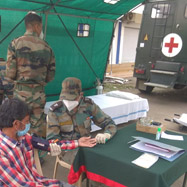Whither Pakistan? Growing Instability and Implications for India
- Publisher: Institute for Defence Studies and Analyses
Pakistan has invariably evoked a great deal of interest among India’s strategic affairs community. Because of historical, geographical, economic and cultural linkages, developments in the neighbourhood have important implications for India’s politics, economy and security. The basic argument that flows from the report is that Pakistan is likely to remain unstable because of inherent weaknesses in its political, economic and security policies.
- ISBN 81-86019-70-7,
- Price: ?. 299/-
- E-copy available











